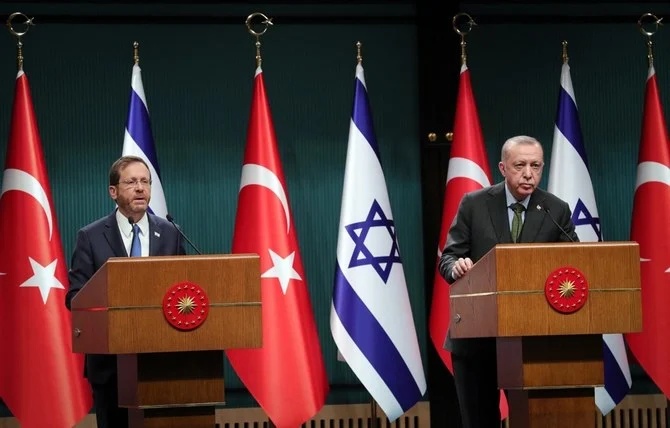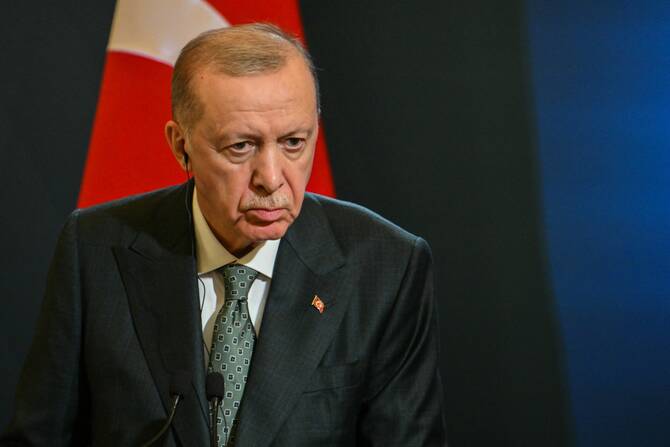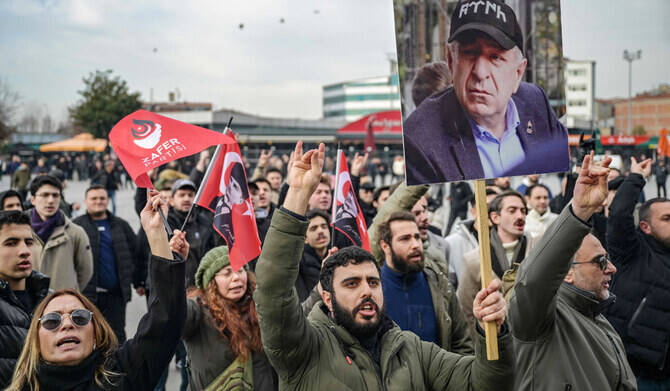Menekse Tokyay
ANKARA: Turkey has appointed a new ambassador to Israel, as both countries move to end four years in the diplomatic wilderness.
Sakir Ozkan Torunlar has been named to fill the role left empty after the two regional powers expelled each other’s ambassadors in 2018 in a row over the killing of 60 Palestinians by Israeli forces during protests on the Gaza border.
His appointment comes weeks after Israel named career diplomat Irit Lillian as its new ambassador to Turkey. President Recep Tayyip Erdogan was also expected in the coming months to reciprocate a March visit to Ankara by his Israeli counterpart, Isaac Herzog.
Contrary to expectations, Torunlar is not a political appointee and is an experienced career diplomat. He was consul-general in Jerusalem and ambassador to Palestine between 2010 and 2014, and was awarded the Order of the Jerusalem Star by Palestinian President Mahmoud Abbas.
Israel is expected to endorse Torunlar’s appointment.
Selin Nasi, a non-resident scholar in Eliamep’s Turkey Program, said that Ankara’s choice was positive for Israel.
“Previously, the foreign ministry was planning to appoint Turkey’s pro-government SETA Foundation foreign policy director, Ufuk Ulutas,” she said, who she added was seen in Israel as a “controversial figure” for his “anti-Israeli views” and lacked diplomatic experience.
Upcoming domestic elections in both countries had accelerated the reconciliation process, she said.
“Given the upcoming parliamentary elections in November, the Israeli side in a way tried to consolidate the process by naming its ambassador in advance, preventing possible interference of domestic politics,” she told Arab News.
“Turkey has also entered the election season. The government is trying to balance domestic concerns with its commitment to restoring ties with Israel,” said Nasi.
Experts say that Turkey and Israel want to deepen their cooperation in tourism, energy, agriculture, water technology, trade and defense.
Nasi said defense cooperation had ground to a halt after the Mavi Marmara incident of 2010, when Israeli commandos stormed a Turkish aid ship headed to Gaza as part of a “freedom flotilla.” Nine crew members died in the attack.
“The docking of the Turkish frigate Kemalreis at Haifa port on the sidelines of a NATO drill for the first time since the Mavi Marmara, indicates a possible thaw in this area as well. It will take time to repair broken trust,” she said.
Both countries’ opposition to the Iranian regime is also expected to push Turkey and Israel closer, she added.
“More importantly, as two militarily strong actors in the region, these two countries have the power to shift the balances on the ground when they cooperate.”
However, Nasi warned that Turkey’s ties with Hamas would be closely monitored by Israel and that domestic politics “may still interfere in the normalization process.”
According to an annual public opinion poll by the Mitvim Institute, an Israeli foreign policy think tank, 72 percent of respondents wanted strengthened relations with Turkey. The figure was up 12 percentage points on the poll last year.
Gallia Lindenstrauss, a senior research fellow at the Institute for National Security Studies in Israel, said the choice of career diplomats by both sides was a good start to better relations as careful and skillful diplomacy was needed.
“There are a few challenges ahead: Elections in Israel, growing tensions in the West Bank, elections in Turkey.”
However, she said that a decision earlier this year to discuss an update to a 1996 free trade agreement was “a good opportunity to see where to expand the already flourishing trade relations between the countries.”
Turkey’s resumption of full diplomatic ties with Israel could also improve Ankara’s image in Washington, which has been damaged by its arms deals with Russia and squabbles in NATO.
The rapprochement is also expected to boost the Turkish tourism industry, Lindenstrauss added. “Israeli tourists are once again flocking to Turkey and we will soon see the return of Israeli airlines to Turkey,” she said.






















